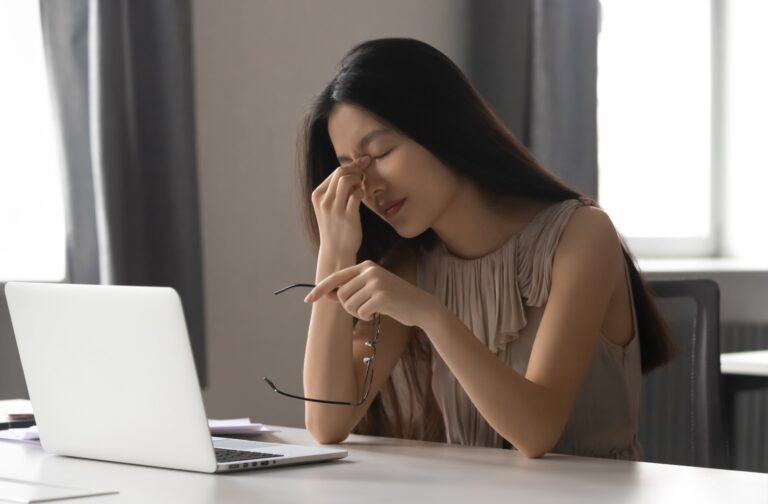Table of Contents

Introduction
Even though periodic eye exams can detect and treat vision problems in their early stages, many people only think about having their eyes checked when a problem arises. The sooner your vision problems are checked and treated, the better your chances are of preventing the condition from becoming more serious. Nipping your vision issues in the bud can give your future vision health a much better chance. If you wear corrective lenses or even if you don’t, the importance of regular eye checkups cannot be overemphasized. Here we’ll talk about the ten symptoms to be aware of and to get checked, even if you think your eyes are normal and healthy.
What is an Eye Exam?
If you’ve never had an eye examination, you may wonder what it’s all about. Generally, we use specific tests to evaluate your ability to see things at various distances. We will also be able to judge your general eye coordination as well as test to determine whether or not you have glaucoma, macular degeneration, high cholesterol, or even cataracts. By first using dilating drops, we can also look into your eyes to see the internal structure. Did you know that in addition to getting your glasses checked, there are several general health conditions, such as high blood pressure and even diabetes, that can be spotted during your regular eye exam?
Why Are Regular Eye Exams Important for Your Health?
10 Signs It's Time for an Eye Exam
1. Blurred vision
2. Headaches
3. Eye strain
Perhaps your eyes feel more tired or strained after looking at your electronic devices’ screens.
4. Poor night vision
5. Dry, itchy eyes
6. Floaters
7. Squinting to see more clearly
8. Overdue for an exam
9. Difficulty judging distance
10. Sudden eye pressure
How Often Should You Get an Eye Exam?
The frequency for getting your vision exams is dependent upon several factors. Some of them can include your age, your general health, and your specific vision issues. The general recommendation for an adult with no vision issues is every year or two. For young children, it is recommended that they get their very first complete eye examination starting when they are 3 years old. After that, assuming no problems were detected, they should be re-checked before they start going to school. After that, their eye exams should follow on a regular basis.
Older adults, those who have diabetes, or people who have a family history of serious eye conditions, need to be examined more often. Naturally, if you wear regular corrective lenses or contact lenses, getting those regular checkups will assure that your prescriptions are up to date and that your eyes are in the best condition possible. If you feel that you have specific vision issues, your doctor will always guide you.
Do You Still Need an Eye Exam If You Don’t Wear Glasses?
Even if you don’t wear glasses, it is still imperative that your eyes be checked on a regular basis because your vision can change gradually. Your eyes should also be checked regularly, even if you don’t currently wear glasses, because some eye diseases, such as glaucoma or macular degeneration, will develop without your awareness, as there are no real symptoms. But a regular eye exam will find these asymptomatic diseases very early on and treat them so they do not become worse.
How Can Golden Vision Help You Stay on Top of Routine Eye Exams?
Your eyesight is one of your most priceless senses. If you feel that the answers to some of the above vision issues relate to you, please get in touch. Our routine comprehensive exams will help keep your eyes in the healthiest condition possible. Here at Golden Vision, by giving you fast and painless eye tests, our team of experienced professionals will help you forestall any serious issues and maintain the best possible vision health.
Reach out to Golden Vision and book an appointment for your next eye exam!

